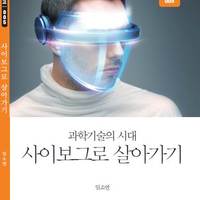So Yeon Leem
Dong-A University, College of General Education, Faculty Member
Science and technology studies (STS) is a relatively new field for studying science, technology, and medicine enacted and entangled in human life and society—that is, science, technology, and medicine as living practices rather than... more
Science and technology studies (STS) is a relatively new field for studying science, technology, and medicine enacted and entangled in human life and society—that is, science, technology, and medicine as living practices rather than universal theories or mere tools—and, more ambitiously, for attempting to compose the new common world beyond anthropocentric visions. STS is thus inherently interdisciplinary, multidisciplinary, or transdisciplinary in its nature. So far, numerous STS works have shown that science and technology construct and are constructed by society such as politics, economy, and culture, just to name a few. In practice, many different human and nonhuman actors, not only scientists and engineers, engage with knowledge production and technological development and operation through consistent, contingent negotiations among them. My own work has moved this concept forward.
My research subject is plastic surgery, which is perhaps one of the most popularized medical technologies in Korean society, making it a good research site to observe the down-to-earth performance of technology. In this talk, I will present major findings from my own research on plastic surgery; propose my own version of STS as a study of cyborgs, things, and mediators; and discuss how it can contribute to improving the science-, technology-, and medicine-mediated world. My work is based on three years of “praxiographic” fieldwork at a plastic surgery clinic in Seoul, South Korea between 2008 and 2011. While revealing the beauty-making practices of surgeons and patients as cyborgs, the unruly power of mundane digital imaging technology, and the mediating roles of nonmedical staff members inside a plastic surgery clinic, I will suggest “beautiful” ways to see science, technology, and medicine in our living world and possibly improve them by empowering cyborgs, things, and mediators.
My research subject is plastic surgery, which is perhaps one of the most popularized medical technologies in Korean society, making it a good research site to observe the down-to-earth performance of technology. In this talk, I will present major findings from my own research on plastic surgery; propose my own version of STS as a study of cyborgs, things, and mediators; and discuss how it can contribute to improving the science-, technology-, and medicine-mediated world. My work is based on three years of “praxiographic” fieldwork at a plastic surgery clinic in Seoul, South Korea between 2008 and 2011. While revealing the beauty-making practices of surgeons and patients as cyborgs, the unruly power of mundane digital imaging technology, and the mediating roles of nonmedical staff members inside a plastic surgery clinic, I will suggest “beautiful” ways to see science, technology, and medicine in our living world and possibly improve them by empowering cyborgs, things, and mediators.
Research Interests:
South Korea is a plastic surgery nation, where the biopolitics of plastic surgery has been more powerful than any other parts of the world. The locus of plastic surgery in South Korea is the district called “Gangnam,” which is located in... more
South Korea is a plastic surgery nation, where the biopolitics of plastic surgery has been more powerful than any other parts of the world. The locus of plastic surgery in South Korea is the district called “Gangnam,” which is located in the southern area of South Korea’s capital, Seoul. Gangnam is where the magical aesthetic enhancement of Korean women as well as the miraculous economic development of modern South Korea have taken place since the late 20th century. Koreans’ love for plastic surgery attracted international attention long before Korean pop singer Psy’s song “Gangnam Style” was a huge hit around the world in 2012. This study thus focuses on how the biopolitics of plastic surgery works in South Korea but in different ways from what most of previous studies have done. Intensive and long-term participant observations at a plastic surgery clinic at Gangnam were carried out for this study from October 2008 to September 2011. Specifically, preoperative consultation processes between a plastic surgeon and lay patients, in which digital photographs are extensively mobilized, are drawn here to show what kind of ‘science’ works at the heart of a plastic surgery nation. By looking at what actually happens inside a plastic surgery clinic, this study attempts to materialize how plastic surgery has been proliferated in South Korea.
Research Interests:
Popular article published in Sisa Journal: Weekly New Magazine 1238: 46-47 [in Korean]
